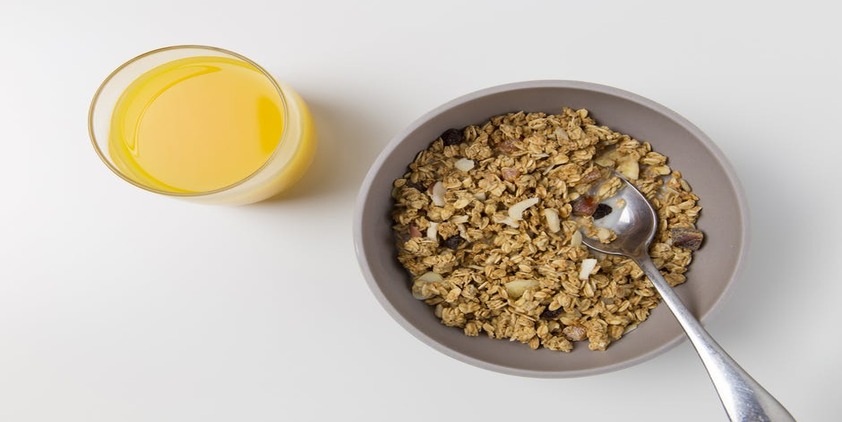

January 22, 2018 | Categories: Health
If you suffer from Irritable Bowel Syndrome with constipation (IBS-C) you may experience symptoms like abdominal pain, bloating, or gas in addition to not being able to have a bowel movement. You may also have a feeling of cramps in the bowels but can’t “go” when you want to. IBS-C is defined as experiencing hard or lumpy stools at least 25% of the time.
While you might not have a desire to eat often because you feel full after normal-size meals, it’s important to follow a healthy diet since that may help ease symptoms. Fiber is a key component of a healthy diet and an IBS-C sufferer’s friend when it comes to relieving constipation and becoming more regular.
Constipation can also bring on hemorrhoids and anal fissures, so getting relief for this or preventing it helps reduce the chances of developing these painful problems.
Increasing the fiber in your diet can help modify, improve, and sometimes eliminate constipation that’s part of your IBS. When your body digests fiber-rich foods, the process can promote healthy bowel function and alleviate some of the painful symptoms that go along with constipation.
Fiber helps soften stool so it’s easier to move through the colon. Some forms of fiber also keep water in the stools, thereby preventing those difficult-to-pass hard stools from forming. Some high-fiber foods to add to your diet include fruits, vegetables, whole-grain breads, cereals, pastas, and beans.
While most healthy adults are advised to consume 21 to 38 grams of fiber a day, it’s best to increase fiber intake slowly, by 2 to 3 grams a day from what you’re consuming now, as too much fiber too soon will leave you feeling gassy and bloated. (Read: Adding broccoli or cauliflower to every meal this week is not the way to relieve constipation—all that fiber will make you feel full and uncomfortable.)
If you have trouble eating enough fiber-rich foods to hit those recommended amounts, your physician might recommend fiber supplementation.
The different types of fiber you consume and how your body reacts to them contributes to the speed and extent to which they’re digested in your gastrointestinal (GI) tract and how they influence your bowel habits. Your body’s response to different types of fibers is individual so you may need to experiment with different types of fiber-rich foods and supplements in order to find what works best for your digestive process and constipation symptoms.
Dietary fiber is either soluble or insoluble.
High fiber substances such as oat bran, soy fiber and psyllium contain both soluble and insoluble fibers. These materials also include the semi-synthetic fiber methylcellulose, which is soluble and gel forming, but not fermentable.
Your doctor may also recommend over-the-counter medication like psyllium or polycarbophil, which helps move bulk through the intestines and promotes bowel movements.
Psyllium is a form of fiber made from the Plantago ovate plant. It’s known as a bulk-forming laxative, which means it soaks up water in your gut and makes bowel movements much easier. Besides keeping your bowel movements regular and managing a chronic condition, psyllium’s ability to soften your stool can come in handy with short-term ailments, such as constipation.
Psyllium is commonly consumed in powder or wafer form and is available in capsules, granules, or liquid form. It is the main ingredient in many over-the-counter laxatives, including Metamucil, Fiberall, Cilium, Maalox Daily Fiber Therapy, and Uni-Laxative.
Polycarbophil is another bulk-forming laxative that increases the amount of water in your stools to help make them softer and easier to pass. It can help ease constipation and help maintain regular bowel movements. Some brand names include FiberCon, Fiber Lax, and Fibertab, to name a few.
Depending on the symptoms associated with your IBS-C, your doctor can recommend particular fiber supplementation combinations to treat various symptoms. For constipation, lower abdominal pain, or problems with evacuation, they might recommend a methylcellulose/psyllium fiber combination.
If you have upper abdominal pain, an oatmeal/oat bran/psyllium combination may be prescribed. And excessive gas can be relieved with methylcellulose/polycarbophil fibers. Your physician can advise you on the best foods to eat and supplements to take to address your individual symptoms.
Read the full article on HealthGrades.
Leave a Reply